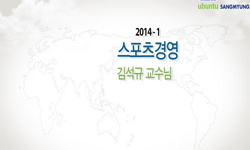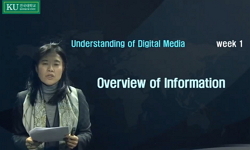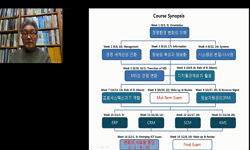Social commerce has been gaining explosive popularity, with typical examples of the model such as Groupon and Level Up. Both local business owners and consumers can benefit from this new e-commerce model. Local business owners have a chance to access ...
http://chineseinput.net/에서 pinyin(병음)방식으로 중국어를 변환할 수 있습니다.
변환된 중국어를 복사하여 사용하시면 됩니다.
- 中文 을 입력하시려면 zhongwen을 입력하시고 space를누르시면됩니다.
- 北京 을 입력하시려면 beijing을 입력하시고 space를 누르시면 됩니다.


소셜커머스에서 거래의 특성이 분배적 정의와거래 의도에 미치는 영향 = Effects of Transaction Characteristics on Distributive Justice and Purchase Intention in the Social Commerce
한글로보기https://www.riss.kr/link?id=A104003823
- 저자
- 발행기관
- 학술지명
- 권호사항
-
발행연도
2013
-
작성언어
Korean
- 주제어
-
등재정보
KCI등재,SCOPUS
-
자료형태
학술저널
-
수록면
1-20(20쪽)
-
KCI 피인용횟수
4
- 제공처
- 소장기관
-
0
상세조회 -
0
다운로드
부가정보
다국어 초록 (Multilingual Abstract)
Social commerce has been gaining explosive popularity, with typical examples of the model such as Groupon and Level Up. Both local business owners and consumers can benefit from this new e-commerce model. Local business owners have a chance to access potential customers and promote their products in a way that could not have otherwise been easily possible, and consumers can enjoy discounted offerings.
However, questions have been increasingly raised about the value and future of the social commerce model. A recent survey shows that about a third of 324 business owners who ran a daily-deal promotion in Groupon went behind. Furthermore, more than half of the surveyed merchants did not express enthusiasm about running the promotion again. The same goes for the case in Korea, where more than half of the surveyed clients reported no significant change or even decrease in profits compared to before the use of social commerce model.
Why do local business owners fail to exploit the benefits from the promotions and advertisements through the social commerce model and to make profits? Without answering this question, the model would fall under suspicion and even its sustainability might be challenged. This study aims to look into problems in the current social commerce transactions and provide implications for the social commerce model, so that the model would get a foothold for next growth.
Drawing on justice theory, this study develops theoretical arguments for the effects of transaction characteristics on consumers’ distributive justice and purchase intention in the social commerce. Specifically, this study focuses on two characteristics of social commerce transactionsthe discount rate and the purchase rate of productsand investigates their effects on consumers’ perception of distributive justice for discounted transactions in the social commerce and their perception of distributive justice for regular-priced transactions. This study also examines the relationship between distributive justice and purchase intention.
We conducted an online experiment and gathered data from 115 participants to test the hypotheses.Each participant was randomly assigned to one of nine manipulated scenarios of social commerce transactions, which were generated based on the combination of three levels of purchase rate (high, medium, and low) and three levels of discount rate (high, medium, and low). We conducted MANOVA and post-hoc ANOVA to test hypotheses about the relationships between the transaction characteristics (purchase rate and discount rate) and distributive justice for each of the discounted transaction and the regular-priced transaction. We also employed a PLS analysis to test relations between distributive justice and purchase intentions.
Analysis results show that a higher discount rate increases distributive justice for the discounted transaction but decreases distributive justice for the regular-priced transaction. This, coupled with the result that distributive justice for each type of transaction has a positive effect on the corresponding purchase intention, implies that a large discount in the social commerce may be helpful for attracting consumers, but harmful to the business after the promotion.
However, further examination reveals curvilinear effects of the discount rate on both types of distributive justice. Specifically, we find distributive justice for the discounted transaction increases concavely as the discount rate increases while distributive justice for the regular-priced transaction decreases concavely with the dscount rate. This implies that there exists an appropriate discount rate which could promote the discounted transaction while not hurting future business of regular-priced transactions.
Next, the purchase rate is found to be a critical factor that facilitates the regular-priced transaction. It has a convexly positive influence on distributive justice for the transaction. Therefore, an increase of the ...
참고문헌 (Reference)
1 이경탁, "소셜커머스 이용의 영향요인에 관한 연구: 사회적 규범과 가격의식성을 중심으로" 한국인터넷전자상거래학회 11 (11): 65-85, 2011
2 Liang, T. -P, "What Drives Social Commerce : The Role of Social Support and Relationship Quality" 16 (16): 69-90, 2011
3 Arora, R, "Validation of an S-O-R Model for Situation, Enduring, and Response Components of Involvement" 19 (19): 505-516, 1982
4 Straub, D. W, "Validation Guidelines for IS Positivist Research" 13 (13): 380-427, 2004
5 Straub, D. W, "Validating Instruments in MIS Research" 12 (12): 147-170, 1989
6 Rochet, J. -C, "Two-sided Markets : A Progress Report" 37 (37): 645-667, 2006
7 Parker, G. G, "Two-Sided Network Effects : A Theory of Information Product Design" 51 (51): 1494-1504, 2005
8 Choi, S, "Trends and Strateies in Social Commercce"
9 Ajzen, I, "The Theory of Planned Behavior" 50 (50): 179-211, 1991
10 Xu, H, "The Role of Push-Pull Technology in Privacy Calculus : The Case of Location-Based Services" 26 (26): 137-176, 2010
1 이경탁, "소셜커머스 이용의 영향요인에 관한 연구: 사회적 규범과 가격의식성을 중심으로" 한국인터넷전자상거래학회 11 (11): 65-85, 2011
2 Liang, T. -P, "What Drives Social Commerce : The Role of Social Support and Relationship Quality" 16 (16): 69-90, 2011
3 Arora, R, "Validation of an S-O-R Model for Situation, Enduring, and Response Components of Involvement" 19 (19): 505-516, 1982
4 Straub, D. W, "Validation Guidelines for IS Positivist Research" 13 (13): 380-427, 2004
5 Straub, D. W, "Validating Instruments in MIS Research" 12 (12): 147-170, 1989
6 Rochet, J. -C, "Two-sided Markets : A Progress Report" 37 (37): 645-667, 2006
7 Parker, G. G, "Two-Sided Network Effects : A Theory of Information Product Design" 51 (51): 1494-1504, 2005
8 Choi, S, "Trends and Strateies in Social Commercce"
9 Ajzen, I, "The Theory of Planned Behavior" 50 (50): 179-211, 1991
10 Xu, H, "The Role of Push-Pull Technology in Privacy Calculus : The Case of Location-Based Services" 26 (26): 137-176, 2010
11 Xia, L, "The Price Is Unfair! A Conceptual Framework of Price Fairness Perceptions" 68 (68): 1-15, 2004
12 Gilliland, S. W, "The Perceived Fairness of Selection Systems : An Organizational Justice Perspective" 18 (18): 694-734, 1993
13 Schmidt, T. A, "The Impact of Voice and Justification on Students’ Perceptions of Professors’ Fairness" 25 (25): 177-186, 2003
14 Grewal, D, "The Effects of Price-comparison Advertising on Buyers' Perceptions of Acquisition Value, Transaction Value, and Behavioral Intentions" 62 (62): 46-59, 1998
15 Blodgett, J. G, "The Effects of Distributive, Procedural, and Interactional Justice on Postcomplaint Behavior" 73 (73): 185-210, 1997
16 Gupta, S, "The Discounting of Discounts and Promotion Thresholds" 19 (19): 401-411, 1992
17 Gefen, D, "Structural Equation Modeling Techniques and Regression : Guidelines for Research Practice" 7 (7): 1-78, 2000
18 Ryu, U, "Social Commerce, Good for Advertisements, but Bad for Profits"
19 Song, H, "Social Commerce vs. Open Market"
20 Park, H, "Social Commerce to Reach a Plateau"
21 You, J, "Social Commerce to Be Allies of Consumers" LG Economic Research Institute Report 2011
22 Homans, G, "Social Behavior: Its Elementary Forms" Harcourt, Brace and World 1961
23 Cho, C, "Reverse of a Medal in Off the Price, Bad Qualiy in Social Commerce"
24 Oliver, R. L, "Response Determinants in Satisfaction Judgments" 14 (14): 495-507, 1988
25 Moorman, R. H, "Relationship between Organizational Justice and Organizational Citizenship Behaviors : Do Fairness Perceptions Influence Employee Citizenship?" 76 (76): 845-855, 1991
26 Mazumdar, T, "Reference Price Research : Review and Propositions" 69 (69): 84-102, 2005
27 Gilliland, S. W, "Procedural and Distributive Justice in the Editorial Review Process" 49 (49): 669-691, 1996
28 Thibaut, J, "Procedural Justice: A Psychological Analysis" Erlbaum 1975
29 Chung, B, "Please Delete the Records Regarding Off the Price … Social Commerce in Dilemma"
30 Conlon, D.E, "Nonlinear and Nonmonotonic Effects of Outcome on Procedural and Distributive Fairness Judgments" 19 (19): 1085-1099, 1989
31 Leitner, P, "Next Generation Shopping: Case Study Research on Future E-Commerce Models" 312-316, 2007
32 Blader, S.L, "Justice and Empathy: What Motivates People to Help Others?, In The Justice Motive in Everyday Life" Cambridge University Press 226-250, 2002
33 Martínez-Tur, V, "Justice Perceptions as Predictors of Customer Satisfaction : The Impact of Distributive, Procedural and Interactional Justice" 36 (36): 100-119, 2006
34 Son, J. -Y, "Internet Users’ Information Privacy-Protective Responses : A Taxonomy and a Nomological Model" 32 (32): 503-529, 2008
35 Bies, R.J, "Interactional Justice: Communication Criteria of Fairness, In Research on Negotiation in Organizations" JAI Press 43-55, 1986
36 Price, J. L, "Handbook of Organizational Measurement" Pittman 1986
37 Tekleab, A. G, "Extending the Chain of Relationships among Organizational Justice, Social Exchange, and Employee Reactions : The Role of Contract Violations" 48 (48): 146-157, 2005
38 Harlos, K.P, "Emotion and Injustice in the Workplace, In Emotion in Organizations" Sage 255-276, 2000
39 Kim, S, "Effects of Various Characteristics of Social Commerce(S-Commerce)on Consumers’ Trust and Trust Performance" 2012
40 Haws, K. L, "Dynamic Pricing and Consumer Fairness Perceptions" 33 (33): 304-311, 2006
41 Cropanzano, R, "Doing Justice to Workplace Emotion, In Emotions in the Workplace: Research, Theory, and Practice" Quorum Books/Greenwood 49-62, 2000
42 Stephen, A. T, "Deriving Value from Social Commerce Network" 47 (47): 215-228, 2010
43 Tax, S. S, "Customer Evaluations of Service Complaint Experiences : Implications for Relationship Marketing" 62 (62): 60-76, 1998
44 Jacoby, J, "Consumer and Industrial Psychology: Prospects for Theory Corroboration and Mutual Contribution, In Handbook of Industrial and Organizational Psychology" Rand McNallY College Publishing Co 1031-1061, 1976
45 Folkes, V. S, "Consumer Reactions to Product Failures : An Attributional Approach" 10 (10): 398-409, 1984
46 Oliver, R. L, "Consumer Perceptions of Interpersonal Equity and Satisfaction in Transactions : A Field Survey Approach" 53 (53): 21-35, 1989
47 Culnan, M. J, "Consumer Awareness of Name Removal Procedures : Implications for Direct Marketing" 9 (9): 10-19, 1995
48 Perdue, B. C, "Checking the Success of Manipulations in Marketing Experiments" 23 (23): 317-326, 1986
49 Cox, J. L, "Can Differential Prices Be Fair?" 50 (50): 264-275, 2001
50 Ariely, D, "Buying, Bidding, Playing, or Competing? Value Assessment and Decision Dynamics in Online Auctions" 13 (13): 113-123, 2003
51 Hindman, N.C, "Beyond Groupon: Daily Deals Evolve, New Competitors Emerge" Huffington Post
52 Lee, J, "Best Selling Products in Social Commerce in 2012"
53 Chandrashekaran, R, "Assimilation of Advertised Reference Prices : the Moderating Role of Involvement" 79 (79): 53-62, 2003
54 Cohen-Charash, Y, "Affect and Justice: Current Knowledge and Future Directions" MPG 360-391, 2008
55 Bies, R.J, "A Passion for Justice: The Rationality and Morality of Revenge, In Justice in the Workplace: From Theory to Practice" Lawrence Erlbaum 197-208, 2001
동일학술지(권/호) 다른 논문
-
A Game Theoretic Analysis of Social Commerce Ecosystem at the Crossroads
- 한국경영정보학회
- Dohoon Kim
- 2013
- KCI등재,SCOPUS
-
- 한국경영정보학회
- Namyeon Lee
- 2013
- KCI등재,SCOPUS
-
- 한국경영정보학회
- SeungHyeon Nam
- 2013
- KCI등재,SCOPUS
-
- 한국경영정보학회
- Youngsok Bang
- 2013
- KCI등재,SCOPUS
분석정보
인용정보 인용지수 설명보기
학술지 이력
| 연월일 | 이력구분 | 이력상세 | 등재구분 |
|---|---|---|---|
| 2023 | 평가예정 | 해외DB학술지평가 신청대상 (해외등재 학술지 평가) | |
| 2020-01-01 | 평가 | 등재학술지 유지 (해외등재 학술지 평가) |  |
| 2017-01-01 | 평가 | 등재학술지 유지 (계속평가) |  |
| 2013-01-01 | 평가 | 등재 1차 FAIL (등재유지) |  |
| 2010-01-01 | 평가 | 등재학술지 유지 (등재유지) |  |
| 2009-03-05 | 학술지명변경 | 한글명 : 경영정보학 연구 -> Asia Pacific Journal of Information Systems외국어명 : The Journal of MIS Research -> Asia Pacific Journal of Information Systems |  |
| 2008-01-01 | 평가 | 등재학술지 유지 (등재유지) |  |
| 2006-01-01 | 평가 | 등재학술지 유지 (등재유지) |  |
| 2004-01-01 | 평가 | 등재학술지 유지 (등재유지) |  |
| 2001-01-01 | 평가 | 등재학술지 선정 (등재후보2차) |  |
| 1998-07-01 | 평가 | 등재후보학술지 선정 (신규평가) |  |
학술지 인용정보
| 기준연도 | WOS-KCI 통합IF(2년) | KCIF(2년) | KCIF(3년) |
|---|---|---|---|
| 2016 | 0.49 | 0.49 | 0.69 |
| KCIF(4년) | KCIF(5년) | 중심성지수(3년) | 즉시성지수 |
| 0.73 | 0.7 | 0.808 | 0.1 |




 ScienceON
ScienceON






